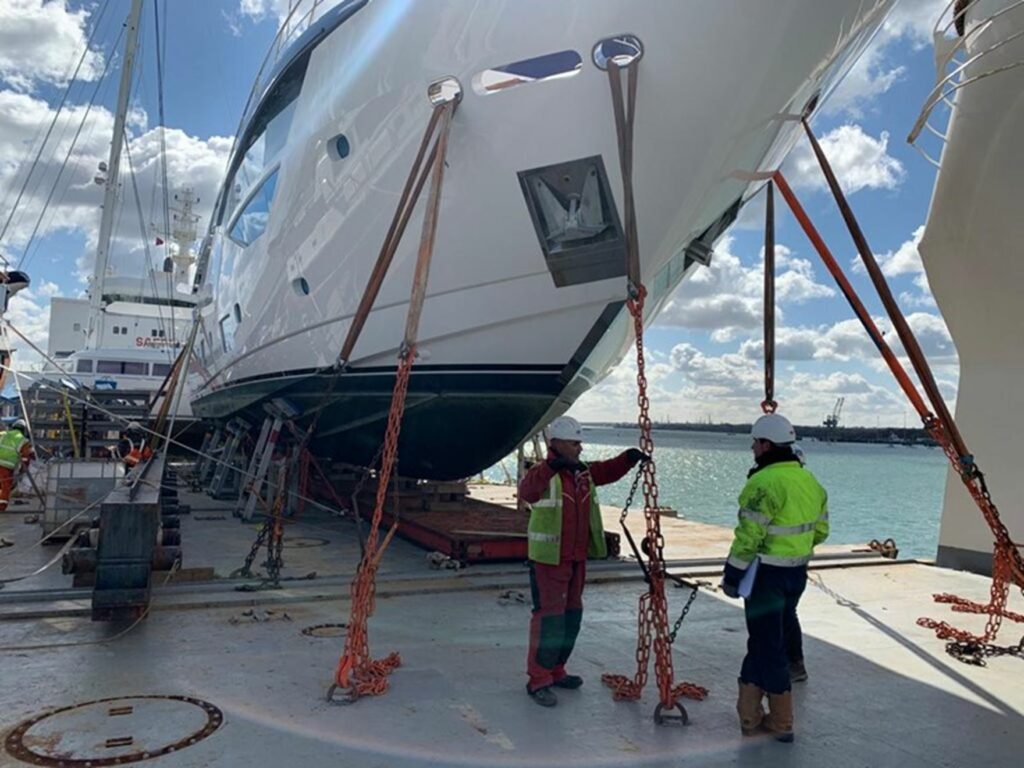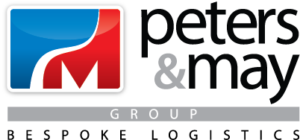Peters & May Ltd requires all of its customers to take out an all-risks cargo policy on goods that P&M arranges to move (either as agent or principal). Whilst Peters & May strives to reduce risk at all opportunities, unfortunately when dealing with a combination of natural forces, and potential human error, damage can sometimes occur. Having an insurance policy in place gives you the assurance that your cargo will be financially secured in case of damage or loss. An all-risks insurance policy also provides you cover for liabilities such as salvage or general average.
Peters & May Ltd has purchased an annual open cover cargo policy to facilitate this. This policy allows Peters & May (as an agent) to ask its insurance brokers to add cargo to the policy as a named co-assured and loss payee. That is, a separate contract of insurance between you and the underwriter will be created and under that contract you will receive a certificate of insurance*. As with all insurance policies, there are set terms, conditions, warranties and exclusions, as well as an insurance premium cost to be paid. Your Peters & May’s sales agents will be able to provide you with the cost and a copy of the policy setting out the terms and conditions. If you require advice on the policy terms, you will be put in touch with the insurance brokers to advise you on their meaning (Peters & May cannot and will not provide advice on the terms and suitability of the policy for your specific needs).
Alternatively, you are entitled to arrange your own all-risks insurance cover (for the whole of the transport) via a third-party insurance provider. If you take this option, then we require a copy of the insurance certificate prior to shipment. Further, we require that your third-party insurance provider (a) names Peters & May as a co-insured on the certificate, and (b) waives its rights of subrogation against Peters & May. Please note that not all insurance providers like doing this, and they may often charge you more (sometimes considerably more) to do so. Indeed, this can make a third-party insurance policy less economically viable than utilizing Peters & May’s open cover policy.
We are often asked why Peters & May must be named as co-assured on a third-party policy. The main reason for this is to avoid misdirected claims (sometimes referred to as misdirected arrow claims) by the third-party cargo insurers. When you sign a contract with Peters & May, you are agreeing that Peters & May will: (a) load, ship and discharge your yacht free of risk to Peters & May; and (b) in the event a third-party insurer makes a claim against Peters & May as a result of damage (and despite point (a)) that you will indemnify and hold Peters & May harmless. So, if you did not arrange for Peters & May to be named co-assured, Peters & May would run the risk of your insurer seeking to take legal action against Peters & May (despite the terms of the contract); which would then mean we have to take legal action against you. As we are sure you can appreciate, this will create a very messy circular legal situation in which only the lawyers win, and ultimately you may end up paying significant legal costs and not recovering your insurance claim amount.
Further, as we are often acting as bailee or quasi bailee of your cargo from the point you hand it into our, or our subcontractor’s, possession and control, certain authorities require to see evidence that we are named as a co-assured before we can book cargo movements with them.
Whilst naming Peters & May as a co-assured might seem a surprising idea to some, it is in fact very common in shipping of almost all project cargoes, and in particular yachts and boats. Unlike some of our main competitors we do not demand (for normal shipments) that the actual carrier (the shipowner) is named as a co-assured as well on a third-party policy.
This additional information might assist you when discussing with your third-party insurance providers.
Of course, if you originally booked your shipment with us without taking part in our open cover insurance policy, but you have since changed your mind (or your third -party provider has refused to name us as a co-assured) and you therefore wish to take part, then we should be able to ask our insurance brokers to arrange this for you. We will require an addendum to your contract to be signed if you are booking on a liner or part charter service. Your sales agent will be able to assist.
*Certificates are only provided as a matter of course for yacht and boat shipments. For general cargo and courier goods, certificates are available on application.

Like any insurance policy taken out, whether on your home or your motorcar, the Marine Cargo Insurance policy taken out to protect your yacht during its passage onboard a vessel (or truck) is subject to an excess (or deductible). This is the first part of any claim payable by the insured (usually the Merchant).
The excess on a standard hull insurance policy is usually at least 0.5% and often higher. Indeed, in the current climate 1% is not unusual.
The excess on a standard marine cargo insurance policy reflects the same sort of level. This is despite the fact that marine cargo cover includes manipulations onto and off of a vessel, together with time the yacht is on the vessel and exposed to conditions which it was not designed to be exposed to.
If you contract us to arrange insurance along with your shipping, please note that we will add you to either our, or a subcontractor’s, open cover cargo policy (acting as your agent only). The insurance policy will be a direct contract of insurance between the insured and the insurer.
Please make sure you are aware of the excess on the policy (along with any exclusions). At the time of writing, it is 0.5% of the insured value (minimum of EUR1,000) for Peters & May’s open cover policy.
For a yacht worth EUR800,000.00 this would equate to around EUR4,000.00. For a yacht worth EUR2.5M, this would equate to EUR12,500.00. Peters & May have options to reduce this deductible by paying an additional premium. Please enquire if this is of interest.
Irrespective, it is important that you only insure your yacht for the actual value of the cargo (based on your current H&M policy, or if no policy in place, a recent bill of sale). Insurers will not pay out for a value higher than the actual market value in case of loss. If you inflate the value of your yacht, you will pay more, and your excess deductible will also be unnecessarily higher – it’s just not worth it.

For some clients it is hard to understand why they can be liable to pay the first part of a claim when they are not in control of the shipment. However, it is important to understand that the level of premium paid, balanced against the excess, reflects a certain level of risk inherent in shipping fragile cargo. To reduce the excess to “zero” would require a very high premium.
That is, when shipping a yacht from A to B, there are always going to be risks. In the same way when you make a sea delivery from A to B, or leaving a yacht in a marina during a storm, there are also risks of damage. A yacht owner must be prepared to accept those risks and in the event of a claim pay any excess due.
Of course, Peters & May have a very long history in shipping yachts safely. We pride ourselves in our technical expertise, planning and risk management. By choosing Peters & May, you are reducing the risk of damage and thus a claim on your insurance.
To conclude, in any event and howsoever caused, any damage will be subject to an excess / deductible which is always payable by the insured.
